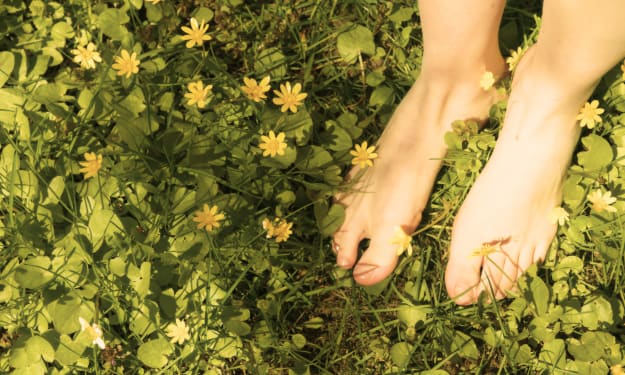Language Labors
The struggle is real

I was 21 years old and off for an unforgettable experience, a mission trip for my church across the world to the tiny country of Lithuania. I spent two months prior to traveling there learning and practicing the beautiful language. I was told that Lithuanian is one of the hardest languages to learn. I am not sure if that is accurate, but I know from experience it was difficult. I thought I was doing pretty well though, that is until I left the airport. The first time I tried to speak to a Lithuanian it was clear I had miles and miles to go. There is nothing quite like being surrounded by people you can’t understand and who can’t understand you.
The best way to learn a language is to be completely immersed in it, listening to it and speaking it ever chance you get; not an easy task for an introvert, but I gave it my best effort. There was no surprise at all that I made a lot of mistakes, even up to the day I left that wonderful country. There is one mistake that stands out in my mind far better than any other though. A few months after I got there I was walking with my friend, Kim, through an old part of Kaunas, the town I was staying in. The city was amazing and I loved walking through history each day. We were on one of the picturesque cobblestone streets, it was the middle of summer, and the sun was beating down on us from the cloudless deep blue sky. There was a light wind blowing, which helped to give a small amount of relief to the scorching day. Kim, who had been there longer, and knew the language pretty well, encouraged me to practice the language every chance I could. We noticed a lady walking towards us, and Kim challenged me to start talking to her. Hesitantly, I struck up a conversation with the lady as she came closer. Starting a conversation with strangers was itself a difficult task in this nation and not just because of my extreme shyness. The people, especially the older generations, still held onto the fears implanted during Soviet and Nazi occupation. You don’t talk to or trust anyone, especially strangers. You never know when what you say could be used against you and you’d be killed or shipped off. So, I was quite surprised when, after calling out “Labas (hello),” the woman actually responded back with, “Labas.”
Excited I quickly continued on, hoping she would keep talking, “Kaip Jums (how are you)?”
“Geria, ir tu (good and you)?” She asked. I was thrilled and petrified at the same time; she asked a question and I understood enough to respond. Searching my brain for words I knew and what would not sound silly to continue the conversation with I went on.
“Man geria, acui. Labai karsta siandien ar ne (I am good, thank you. Very hot today isn’t it)?”
She nodded and responsed with, “Taip tai karsta (yes, it is hot).”
“Mums reikia daugiau vyras.” I said feeling pretty darn proud I’d carried on a conversation so far.
Then, the woman walked off mumbling something I could not understand. My friend next to me burst out laughing and I knew I’d said something wrong, but I could not for the life of me figure it out.
“You just told her we needed more husband,” Kim said still laughing. “It's no wonder she walked off confused. You should have said vejas. Vejas is wind vyras is husband.”
My face went beet red and my triumphal moment came crashing down. I had many more mistakes in my time there, but this one will forever be seared in my mind. The important thing is I didn’t give up after this, or any of the other mistakes I made. I kept trying and at the end of my 16 months there I was able to hold conversations; granted at probably just a 2nd grade level, but it was enough.
-————————————————————
Check out this fictional story about visiting other lands.
Or check this story out from another personal experience living away from my homeland.

About the Creator
Enjoyed the story? Support the Creator.
Subscribe for free to receive all their stories in your feed. You could also pledge your support or give them a one-off tip, letting them know you appreciate their work.






Comments
There are no comments for this story
Be the first to respond and start the conversation.